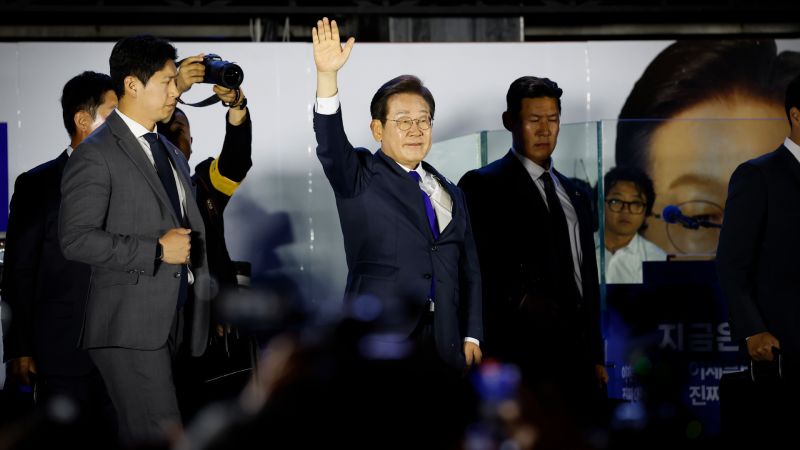The article presents the election of Lee Jae-myung as South Korea's new president, highlighting the political context following the removal of former president Yoon Suk Yeol. This situation is crucial for understanding the implications for democracy, the economy, and international relations, particularly with the United States.
Political Context and Implications
The selection of Lee Jae-myung by the Democratic Party signifies a potential shift in South Korea's political landscape. His election comes in the wake of political instability, including the controversial martial law declared by his predecessor. This context suggests that Lee may have a mandate to restore stability and enhance democratic governance, which could resonate positively with voters seeking change.
Public Perception and Messaging
The article aims to create a perception of hope and renewal under Lee's leadership, positioning him as a stabilizing force in a tumultuous political environment. This narrative might be intended to mitigate fears regarding political instability and to assure the public of a more democratic and economically sound future.
Underlying Issues and Omissions
While the article focuses on Lee’s election and its implications, it may gloss over the complexities surrounding the previous administration's actions, including the reasons behind the martial law and the public’s response. This could indicate an intention to simplify the narrative and avoid delving into contentious political issues that might detract from the celebratory tone surrounding Lee's election.
Comparative Analysis with Other News
When compared to other news reports on similar political events, this article aligns with a broader trend of framing new leadership as a turning point for nations undergoing political upheaval. This aligns with media narratives that favor new beginnings, potentially obscuring the continuity of underlying issues that persist despite leadership changes.
Economic and Social Impact
Lee's presidency could lead to significant changes in South Korea's economic policies, particularly in trade relations with the United States. The article hints at a favorable outlook for these ties, which could influence market sentiments and investor confidence. The announcement may encourage certain sectors, such as technology and manufacturing, to experience positive movements in stock prices.
Support Base and Audience
This article seems to cater primarily to progressive and reform-minded groups within South Korea who are likely to support Lee's Democratic Party. By emphasizing a hopeful future, it aims to rally these communities around the new leadership and encourage civic engagement.
Global Power Dynamics
In the context of global politics, Lee’s election could have implications for the balance of power in East Asia, especially concerning North Korea and China. The article’s focus on trade ties with the US suggests an intention to align South Korea more closely with Western interests, which could impact regional dynamics.
AI Influence and Writing Style
It is possible that AI tools were employed in the drafting of this article, particularly in organizing information and ensuring clarity. The straightforward presentation of facts may reflect a formulaic approach typical of AI-generated content, although it does not detract from the article's effectiveness in conveying key messages.
In conclusion, the article provides a largely optimistic portrayal of Lee Jae-myung’s presidency while potentially downplaying the complexities of the previous administration's challenges. Overall, the reliability of the news can be considered moderate, as it presents a clear narrative while omitting deeper political intricacies that could inform a more comprehensive understanding of the situation.
